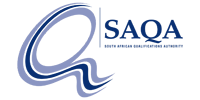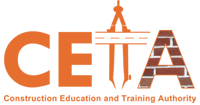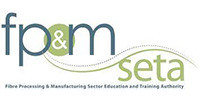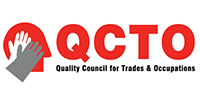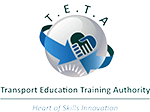The importance of first aid training and its life-saving benefits have been discussed in great detail in several sources. From your workplace to the school grounds, having someone on-site with some form of experience is so important that it has become a legal requirement. However, what generally becomes understated is how necessary continual first-aid training can be.
Being able to treat people utilising first aid effectively is critical. Still, the field of first aid and its education is ever-evolving as we find new techniques and use better technology to improve the effectiveness of first aid. Because of this, we at EMCARE limit the validity of certificates to a couple of years (depending on the course), encouraging those who trained in the past to revisit their first aid training and learn about what is new in the space.
In this article, we want to emphasise the importance of refreshing your skills by looking first at how first aid has changed over time, after which we will look at some potential drawbacks of using outdated knowledge and will end by looking at the advantages of taking a refresher course.
How The Science Of First Aid Training Evolves
Did you know that first-aid training can be traced back to the Roman army? Amputation of body parts that had broken bones was often a popular solution. However, in our modern era, we would not dare use that technique. Why? Because as we have come to understand the human body and improved our medical knowledge, we know that if taken care of correctly, broken bones can be treated efficiently.
Although the above example is extreme, it is essential to highlight how medical science has changed dramatically. But even how we would have applied first aid ten years ago has changed, and many techniques we used back then could now be considered incorrect. Let us look at a few more modern examples of how first aid techniques have changed to examine this point further:
- Poisoning: In some first aid textbooks from 2010, it was still recommended that if a patient was thought to have been poisoned, you should help the patient induce vomiting. The idea was that this would clear the system and eliminate the poison. However, today, we know that sometimes, bringing up the poison’s source can cause more damage. Today, the correct technique is: “Call emergency professionals immediately,” – after which you are encouraged to follow their guidance.
- Correct CPR techniques: Before 2010, the cardiopulmonary resuscitation technique (CPR) was taught as ABC, which stood for checking the airway, then checking for breathing and then performing chest compressions. However, this was changed to CAB by the American Heart Association, as it was found that when CPR is required, blood flow promoted by chest compression is the most important and should be conducted first.
- Burns: In the twentieth century, did you know butter was recommended for treating burns? Although it may initially help the pain subside, the oil in butter would actually seal the skin, not allowing the heat from the burn to escape naturally, which could cause even more damage to the skin cells. Instead, today, we recommend pouring cold water for between five to ten minutes to help soothe the burning sensation, after which bandaging the affected area to prevent infection is recommended.
The Drawbacks Of Using Outdated Knowledge
Above, we looked at only a few ways first aid training techniques have developed well, showing how utilising old techniques can cause more damage than good. In this section, we want to further emphasise this point by looking at some of the disadvantages of using out-of-date knowledge when performing first aid.
- Inaccurate Medical Knowledge: As we have commented on in this article, medical science has rapidly evolved. Old first aid techniques were, of course, based on the medical science of the day. However, many times, just like the examples provided above, old medical knowledge may have been inaccurate or completely false. This would directly impact the quality and effectiveness of the proposed treatments. Many times, using these outdated techniques will only worsen the current emergency. Therefore, they should be avoided.
- Delayed Response: The confidence in knowing first aid in an emergency can generally be advantageous. But if that confidence is based on outdated information, you could delay getting help from emergency services by using first aid training that is not effective. This will delay any beneficial help, which in life-threatening situations can be critical.
- Legal Or Ethical Consequences: In some cases, if using old first aid techniques can be shown to have caused further damage or delayed critical help, there may be a legal penalty for applying outdated first aid teachings. Even if you are looking to help, doing so irresponsibly can cause more damage.

Advantages Of Regular Refreshers
So far, we have only looked at the negatives of not continually educating yourself with updated first aid training. But at EMCARE, we like to encourage regular refreshers for our pupils for the advantages they provide rather than scaring you by only looking at the drawbacks. So, in this section, let us list some of the advantages that will hopefully excite you into taking a refresher first aid course when you can:
- You will be reaccredited with a new certification, meaning that you can legally practise first aid for a longer period of time.
- Educating yourself on the new techniques and updated information will also benefit you personally as you gain a broader knowledge of human physiology and how to treat it.
- By attending more first aid courses, you are also receiving more training than if you only participated once, which means you are better prepared to help in an emergency.
- The key to good first aid training is providing students with the confidence needed to perform in an emergency. By regularly attending first aid courses when needed, you will also have an increased confidence to help out in those situations.

EMCARE: The Best Place To Train
In this article, we looked at the negatives of using outdated first aid information and highlighted some of the key benefits of retaking your first aid training. At EMCARE, we want to help train first-aiders who can be effective and helpful in stressful emergencies, but we know this can only be done through continual first aid training.
We help cater for this continual training by providing several courses at all first aid levels throughout the year. We are also accredited and are sure to keep our information as up-to-date as possible. So, if you want to improve your first aid skills, look no further than EMCARE. Contact us today to find out when you can join the next session.




